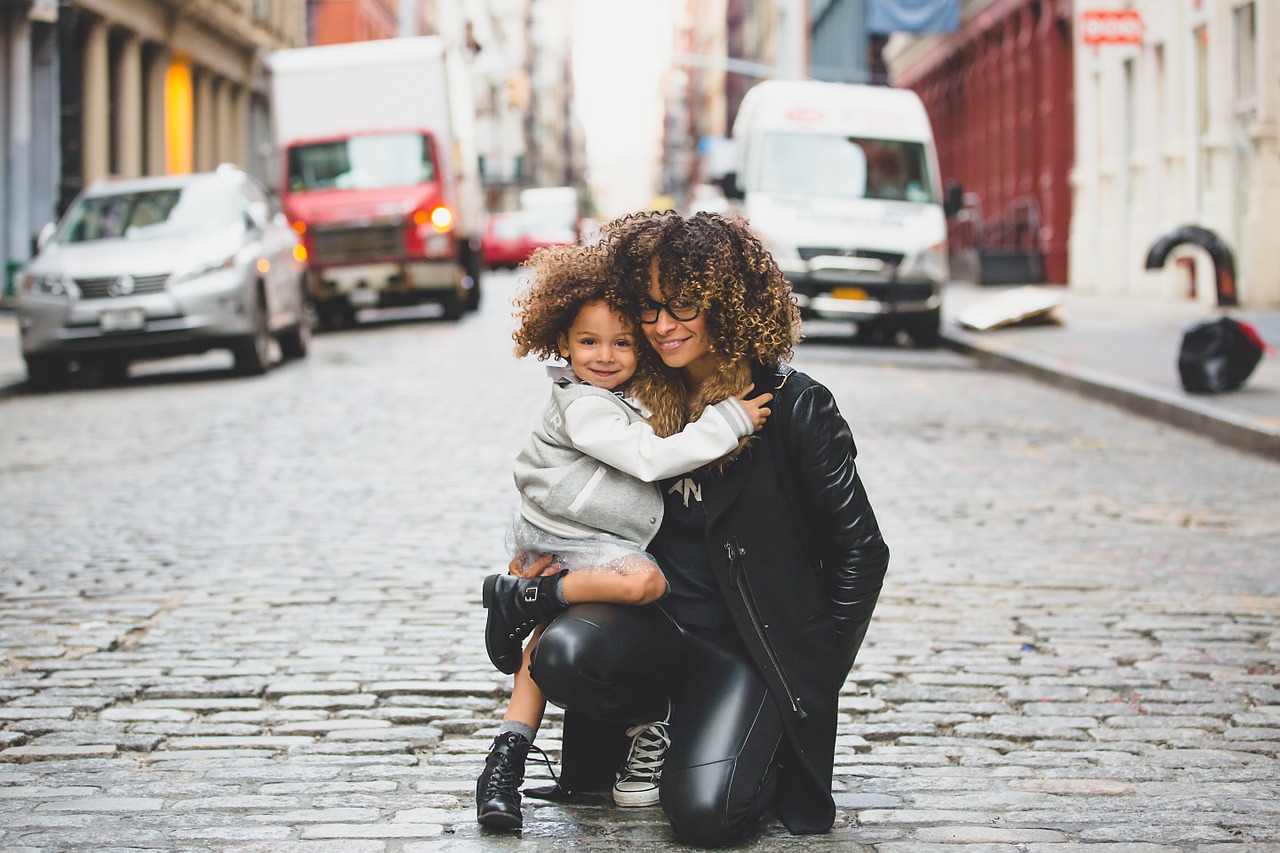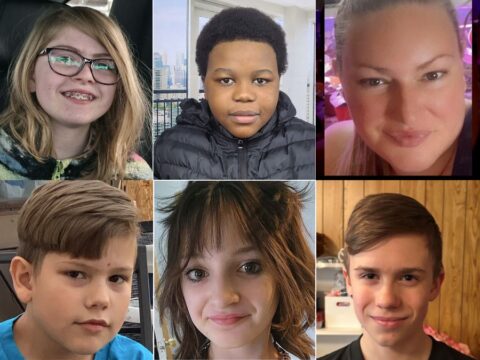Lorrie Beauchamp was eight years old when she started writing a daily journal. Even then, she wrote down something that she knew, instinctively, about herself: she wasn’t interested in getting married. Her own mother wed at 19 and started having her five children at 20. “That pretty much cemented her future,” says Beauchamp, now 59 and living in Laval, Que. Instead of finding a partner and settling down, she moved out at 18 to start a career in advertising and marketing, and eventually became a medical writer. “I never, never wanted to get married and have children,” she says. “Even though I was still conditioned by society and my peers to go that route and try it out.”
And she did try, in a pair of long-term relationships that lasted for 12 and six years. After the second ended in 2011 and the heartbreak subsided, she didn’t miss her partner, or long to start dating again. “I felt this enormous sense of relief,” she says. When her friends and family encouraged her to find her next man, she resisted and slowly realized something about her years of romantic experience. “I was doing it mostly because there was this peer pressure to find that soulmate and to be happy within a relationship. But it didn’t apply to me.”
You may unsubscribe from any of our newsletters at any time.
Now that she’s stopped trying to find somebody, she feels more free, more herself. She travels. She spends time with friends, enjoys strong relationships with her siblings and their children, and is currently caring for her parents, who have Alzheimer’s disease. If she wants male companionship, she’s open to dating casually, never expecting it to turn into anything more. “I love being on my own,” she says. “I kind of wish I had figured it out when I was 30, and didn’t waste those many years trying to fit into a relationship, fit into that mould, because I probably would have lived a much fuller life.”
A lot of us feel that pressure to couple off. It’s hard not to in a world saturated with love songs, where even children’s stories end with a romantic couple living happily ever after, and where many adults do find fulfilling partnerships. Our love of love goes so far that we assume those who are in between relationships are longing for a connection. Marriage has always been prized, though over time it has morphed for many from a practical arrangement to a union predicated by love. Christians consider it to be blessed by God. “It is not good that the man should be alone,” says God in Genesis 2:18, looking at newly created Adam before making him a partner in Eve.
The majority of Canadians are part of a couple, either married or common law, but the demographics are shifting. The number of adults living without a serious partner — those who are divorced or widowed or who never married — increased from 38.9 percent in 1981 to 42.3 percent in 2011. Even with the divorce rate still hovering around 40 percent, the proportion of those who have always stayed single is growing. In 1981, 10.5 percent of women between 30 and 34 and 6.3 percent of women 55 to 59 had never been married. By 2011, the numbers for the same age groups jumped to 43.4 and 11.2 percent. The shift is often attributed to changing social trends, especially for women: today, more women enter the workforce and more are able to control the timing of reproduction with birth control or fertility technology. Marriage and relationships are increasingly an option, not an obligation — a potential part of life, not an end goal.
People who are single by design — growing in numbers and visibility — are challenging social norms by creating the lives they want instead of chasing the ones they “should” want. That’s something even the Bible supports. In 1 Corinthians 7, the Apostle Paul presents married and single people equally: “each has a particular gift from God, one having one kind and another a different kind.”
When Bella DePaulo was working on her PhD at Harvard University, being single was the norm among her classmates. Then she moved to start work as an assistant professor at the University of Virginia. She liked her new colleagues — they would go out for lunches and chat happily on campus — but this time, many were married. “At the end of the day one Friday, as a work-related social event was drawing to a close, I watched two of my coupled colleagues and their partners head out together to dinner,” she wrote in a blog post for Psych Central. “I wasn’t invited. That hurt.”
She couldn’t tell if any individual slights were because she was single or more personal, so she approached it like a researcher. She started a file of notes and added to it every time her relationship status became a detriment. At a party, she asked one woman if she ever felt excluded by her coupled friends and got a flood of stories in return. Others who overheard joined in, even emailing DePaulo the next day with more examples. The same thing happened when she brought up the subject at another university a month later. “That’s when I realized that this was not just some quirky thing about me,” she wrote in a blog post. “It was something that resonated with lots of other singles.” Eventually she dedicated herself to studying the social science of single people, which she now does as a project scientist at the University of California in Santa Barbara.
Her work stands in opposition to a large body of research about the benefits of marriage, whose biggest cheerleaders are Linda Waite and Maggie Gallagher. In The Case for Marriage: Why Married People Are Happier, Healthier and Better Off Financially, they present an enticing list of benefits — more money, more fulfilment, more successful children, more years to live — and suggest that anyone can have this charmed kind of life; all you have to do is get married. People believe this: when DePaulo and collaborator Wendy Morris asked hundreds of undergraduate students to predict their future happiness on a scale of zero to 10, they guessed, on average, that they would reach an 8.4 if they got married. If they were to stay single, only 3.2.
But, it’s just not true. Studies do show that married people are healthier and happier than those who aren’t currently married, but they’re compared against all divorced, widowed and never-married people. Studies that separate the comparison groups have shown that always-single people are just as happy and healthy; it’s a marriage ended by death or divorce that leads to worse outcomes.

The one area where couples do have a distinct advantage is finances: they either have two incomes contributing to their household expenses or have one person with the time to take care of any cleaning, cooking or childcare. But beyond that, couples can share tax credits. They can use each other’s health benefit plans. One study even showed that the majority of rental agents would choose a married couple over other pairs of applicants, even with the same combined income.
DePaulo calls these disadvantages, and the negative stereotypes behind them, “singlism.” While there are certainly worse “-isms,” this one can be annoying and damaging nevertheless. The stereotypes are well known: an older man without a partner needs to grow up; an older single woman needs to stop being so picky; single is synonymous with lonely; everyone dreams of finding “the one.” DePaulo’s research shows that people view singles as insecure, self-centred, unattractive, unhappy (though more successful), and those perceptions get worse for older singles.
“Because people are so rarely exposed to any other way of thinking,” says DePaulo, “they cling to relationships that are bad for them, and they pursue romantic relationships even when they might live a better, more fulfilled and more meaningful life by staying single.” In 2015, DePaulo started a Facebook group called the Community of Single People. It now has over 1,800 members who share articles, advice and achievements with each other. They meet up in person, too; a group of New York-based members got together to see The Lobster, director Yorgos Lanthimos’s glum 2015 dystopian satire about the overemphasis on coupled life. (In the film, people who become single are sent to a hotel where they have 45 days to pair off, or else be turned into an animal of their choice.)
Kristin Noreen, 52, has been a member of the Facebook group since it started, and it’s been a source of real friendship and community for her. Whenever she travels outside her home city of Bellingham, Wash., she makes a point of meeting people from the group. “When we finally meet, we just hug,” she says. She now lives purposely without a relationship, though it took her some time to get there. At 24, she got married, but before long she realized, “I didn’t like being married at all.” She didn’t like sharing her space or having to follow her spouse to different cities for jobs. Then she realized she wasn’t heterosexual. She divorced and moved to Bellingham, in part because of its active LGBT community. “Not long after I got here,” she says, “I realized I didn’t want to date either. I just want to live.” When she came across one of DePaulo’s books, it all made sense. “I read it in one night and realized, okay, this is me. This is what it’s all about. I’m single at heart.”
Actively choosing to be single isn’t as rare as it might seem. This past October, a post on the anonymous message board Reddit asked single men to share why they weren’t in a relationship. Nearly 21,000 comments poured in. While some cited bad experiences with previous relationships or their own anxieties, a significant minority admitted that they just didn’t want to be attached. “Because I am sort of selfish and want to do what I want when I want,” one man wrote, adding, “I can be alone without being lonely!” In fact, research shows that he’s right: single people have more meaningful social connections than those in long-term relationships. They’re also more likely to be self-determined, value meaningful work and feel like they’re growing and developing as people.
And while living solo isn’t the first choice of every satisfied single, many are embracing it by doing things that we’ve long assumed required a partner. Athena Reich, 40, has always known she wanted to be a mother. She left her hometown of Toronto to pursue a creative career — she’s an actress, writer, musician and Lady Gaga impersonator — and tried to find a partner to achieve that dream with. “It just was never the right relationship,” she says. “It never worked out.” When Reich was 36, the woman she was with said she wasn’t sure if she wanted children. Reich remembers thinking, “You know what? I’m just tired of waiting for someone else. I’m just going to do it on my own!” She ended the relationship and eventually had a baby boy named Phoenix. He’s now 18 months old, and she’s since moved back to Toronto to raise him.
She compares the desire to have a child to the calling she feels to be an artist: being a mother is just part of who she is. She still would love to be in a relationship, a kind of loving best friendship she wouldn’t have to settle for, but is more concerned about caring for her son and deciding if she wants a second child. “I’m open to [a relationship], but I don’t have a lot of time right now to pursue it very actively,” she says. “But I’m okay with that. . . . I definitely would like love, but I don’t feel like I have to find love.”
There are, of course, some practical challenges to raising a child on your own; but there’s another part of life that’s harder for singles to deal with: failing health. A spouse can drive you to doctor’s appointments; provide comfort, support and advocacy in the hospital; and take care of the day-to-day business of living.
For many singles, networks of friends and relatives can fill these same needs, though a more supportive health-care system could be vital for those who are truly isolated. When Joan DelFattore, 70, was diagnosed with cancer, she had a lot of people she could call on. She found, though, that her friends and cousins weren’t treated the same way as children, parents or spouses by the hospital system. During one surgery, her supporters sat in the waiting room for hours without any updates from the doctors because they weren’t immediate family. “The problem wasn’t official hospital policy,” wrote DelFattore in the Washington Post, “but hospital employees who imposed their personal prejudices on me and on the people who love me.” DelFattore is now working on a book about her choice to live without a partner, and having a serious illness without one.
For the conservative Catholic family she was raised in, the choice was unusual. She didn’t want the inequality faced by her grandmother’s generation or the stay-at-home life lived by many in her mother’s. Instead, she became an academic and is currently a professor emeritus at the University of Delaware in English and legal studies. She fills the rest of her time with writing, participating in clubs and running a writing program at her local cancer centre. “When I came home, I had solitude, autonomy, independence, to a degree that would not have been possible with any kind of marriage or even a non-married partnership,” she says in a telephone interview. “I understood that a romantic relationship can be a very beautiful thing. But to me, it wasn’t worth trading for what I already had.”
She’s started to notice resistance to this idea getting quieter. “The statistics show how many unmarried people there are,” she says, “and the likelihood that millennials and generations behind them will not marry at the rates that previous generations did. I think the culture has changed to accept that.” As we wrap up our conversation, she turns a question toward me. “If you don’t mind answering what I hope is not an intrusive question, how old are you?”
“I’m 24,” I say. I can hear a warm smile in her voice as she continues: “I am so glad to hear that. Because, for my generation, women’s choices were a whole different subject than they are now. . . . I’m very happy for you that you have a choice.”
This story originally appeared in the February 2017 issue of The Observer with the title “Single and satisfied.”













